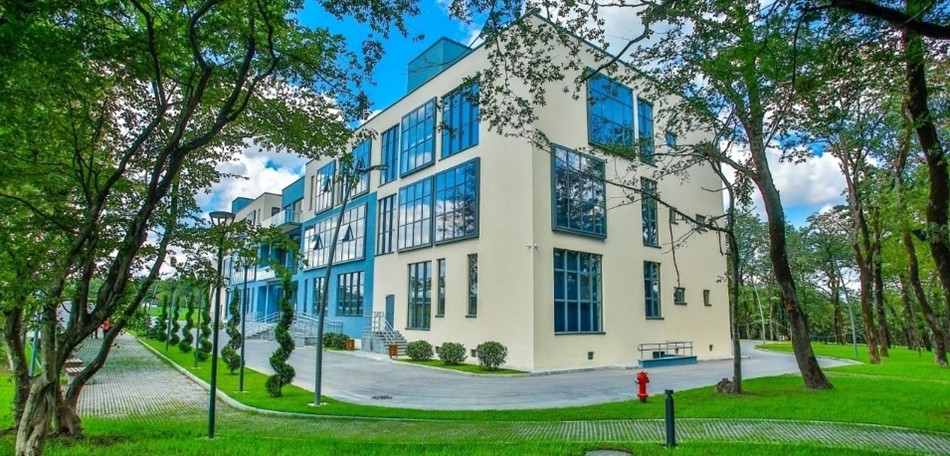Cost of Living in Kutaisi, Georgia — A Practical Guide for MBBS Students
Below you’ll find a student-friendly, practical breakdown of monthly expenses, currency and exchange tips, part-time work realities, and actionable budget hacks tailored for Indian MBBS students heading to Kutaisi. I used up-to-date, original sources for the figures and recommendations cited below.
Food, transport, and daily-needs cost (monthly estimates)
Rent dominates the budget for most students. You can expect a wide range depending on whether you share an apartment, rent privately, or live in a hostel. Short benchmarks:
- Shared apartment or student flat (per student): ~200–400 USD / month (≈ 650–1,300 GEL). Single one-bedroom apartments cost more.
- On-campus hostels or budget private rooms: ~50–150 USD / month for dorm beds or simple private rooms. Use hostel booking sites for short stays while you search long-term.
Daily living:
- Groceries (monthly): 70–120 USD depending on whether you cook Indian meals (spices and lentils add small extra costs) or eat out. Local markets (Green Bazaar) supply fresh produce at low prices — great for students who cook.
- Eating out: cheap cafés and student canteens offer meals for 2–6 USD. A mid-range restaurant meal costs more.
- Local transport: buses and minibuses keep daily travel cheap — monthly transport typically runs 10–20 USD if you commute regularly. Taxi trips inside the city often cost only a few dollars.
- Utilities & internet: if not included in rent, expect 30–60 USD/month (depends on heating season). Wi-Fi and mobile data remain affordable.
Practical monthly student budget (typical, modest lifestyle):
- Rent (shared): 250 USD
- Food & groceries: 90 USD
- Transport: 15 USD
- Utilities & internet: 40 USD
- Misc (books, leisure, SIM): 40 USD
Total ≈ 435 USD / month (roughly 1,200–1,600 GEL depending on exchange movement). Use Numbeo and student guides as cross-checks when you plan.
Currency exchange & managing money
Georgia uses the Georgian Lari (GEL). Indian students should compare digital exchangers and banks:
- Use Wise / XE to check live GEL↔INR rates and move money at near-market rates. Avoid airport exchange booths for large sums.
- ATMs and card acceptance: ATMs appear across Kutaisi and cards work widely, but carry some cash for local markets and small vendors. Know your bank’s international withdrawal fees and set up a multi-currency card if possible.
Currency tip: convert a small amount of GEL in India for initial expenses, then use local ATMs or Wise transfers for better rates. Keep scanned copies of cards and passport in case of loss.
Part-time work opportunities
Georgia allows international students to work, but real opportunity and rules vary:
- Informal / common student jobs: tutoring (biology/English), café or restaurant shifts, retail, and occasional campus roles. Proficiency in Georgian or Russian increases chances.
- Legal framework: many sources report students can work but should check current labour rules and any visa conditions before relying on income. Wage levels remain lower than Western Europe; treat part-time work as supplemental, not primary funding.
Practical advice: build local language basics, network with seniors for leads, and avoid unofficial promises from recruiters. Confirm whether your student visa requires employer notification or work permits.
Budget tips specifically for Indian students
- Cook and buy local produce. Fresh fruits and vegetables at Kutaisi markets cost markedly less than supermarket-ready imports. Stock up on essential Indian spices upon arrival, then buy staples locally.
- Share accommodation. Split rent, utilities, and groceries with 1–3 roommates to cut housing costs 30–60%. Look at month-to-month listings on local rental sites and Facebook student groups.
- Short-term to long-term trick: book a hostel or Airbnb for 1–2 weeks on arrival, use that time to view apartments in person and negotiate rents. Hostel platforms list very cheap short stays.
- Use student discounts and campus services. Universities often partner with local clinics, gyms, and transport providers — ask the international office.
- Track exchange rates and transfer larger sums when rates favour you. Consider a low-fee international money transfer service instead of repeated ATM withdrawals.
Final practical checklist before you leave India
- Estimate a 6-month buffer (tuition + 6 months living) and convert/safeguard this fund.
- Carry core Indian groceries that you can’t find easily (ghee, a few spice mixes) for the first month.
- Open an international-friendly bank account or set up Wise/XE and link your cards for safe withdrawals.
- Learn basic Georgian/Russian phrases and join Indian student groups for tips on bargains, housing, and part-time leads.
ABOUT : Central University of Europe Georgia MBBS admission for Indian students
For Admission feel free to contact us on +91-8447798979 ,+91-9999768177 or check our website :www.thecareerasssistance.com
